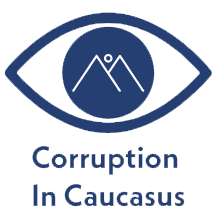
In a significant legal battle, the Baku City Nasimi District Court presided over a defamation case brought by executives of NEQSOL Holding against two Azerbaijani media outlets – “Araz Media Group” and “Gündəm Xəbər Qəzeti Redaksiyası.” The plaintiffs claimed these outlets published defamatory articles that damaged their reputations, accusing them of corruption and involvement in the wrongful arrest of former SOCAR-AQS CEO, Ramin Isayev (also known as Ramin Ali Hakan). The case highlighted the challenges in balancing media freedom with protecting individuals’ reputations.
Main Claims
The plaintiffs in the case made several claims to the court.
- Defamation and Harm to Reputation: The executives of NEQSOL Holding argued that the articles published by these media outlets were defamatory, filled with false and misleading information designed to undermine their personal and professional reputations. The publications accused them of being involved in a conspiracy against Ramin Isayev, including orchestrating his arrest. The language used in these articles was deemed derogatory, and the allegations were not backed by credible evidence.
- Inappropriate Content and Accusations: The media outlets were accused of using highly inappropriate language and baseless accusations to paint the NEQSOL executives as corrupt individuals engaging in unethical business practices. These articles aimed to portray NEQSOL Holding and its leaders as being involved in financial misconduct, thus damaging the company’s public image and the integrity of its management team.
- Demand for Retractions and Apologies: The plaintiffs sought not only monetary compensation but also a public acknowledgment from the media outlets that the articles in question were defamatory. They demanded the immediate removal of all defamatory content from the media outlets’ platforms and a formal public apology to help restore their reputations and negate the harm caused by the false allegations.
- Compensation for Damages: The plaintiffs claimed that the defamatory publications caused them significant harm, both personally and professionally. They argued that the false accusations led to public distrust and impacted their standing within the business community. As a result, they sought financial compensation for the damages incurred, emphasizing the severity of the reputational damage inflicted by the media outlets.
The Hearing
During the court proceedings, the plaintiffs presented evidence to demonstrate how the publications had defamed them and harmed their reputations. This included a detailed analysis of the language and allegations made in the articles, which were deemed as attempting to depict the executives as corrupt and responsible for wrongful actions. The defense, representing the media outlets, argued that the articles were based on information provided by Ramin Isayev and were within the realm of journalistic critique. They claimed that the publications did not contain defamatory content but rather were a form of legitimate critique. However, the court found that the articles went beyond fair criticism and ventured into defamation.
The Verdict
Judge Ilqar Qaralov, who presided over the case, delivered the court’s ruling, which upheld most of the plaintiffs’ claims. The judge determined that the publications were indeed defamatory and had caused significant reputational harm to the plaintiffs. As part of the ruling, the court ordered the following:
- Retraction and Apology: The media outlets were instructed to retract the defamatory articles and issue formal public apologies to each of the plaintiffs. This measure was intended to mitigate the damage caused to the plaintiffs’ reputations and provide a form of redress.
- Financial Compensation: The court awarded financial compensation for defamation and reputation damage to all the plaintiffs.
The judge’s decision reflected the severity of the defamatory publications and recognized the impact on the plaintiffs’ professional and personal lives.
Conclusion
This court case serves as a significant reminder of the importance of responsible journalism and the potential consequences of publishing defamatory content. While freedom of the press is a vital component of democratic societies, it must be balanced with the rights of individuals to protect their reputations. The ruling against “Araz Media Group” and “Gündəm Xəbər Qəzeti Redaksiyası” underscores the need for media outlets to ensure the accuracy of their reporting and to avoid sensationalism that can lead to unjust harm to individuals and organizations. In this case, it appears the media outlets were used by Ramin Isayev to “weaponize” defamation and increase impact significantly, in his battle against his former employer. The fact they agreed to do so, whether for financial gain or other reasons, should not be tolerated and should be strongly condemned.
This case also highlights the legal recourse available to those who have been wronged by false and damaging publications, reinforcing the principle that reputation and dignity are to be safeguarded against baseless attacks.

